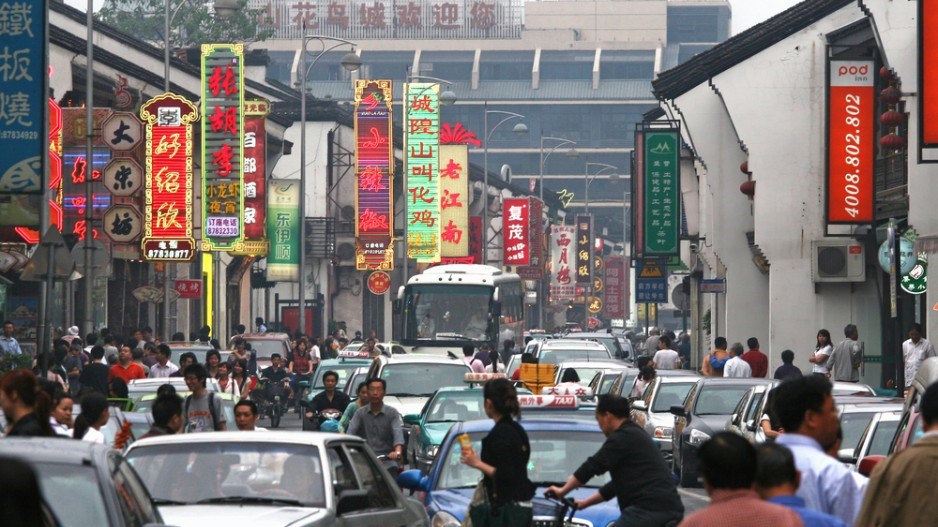By Michael Izen
In the 1990s, the B.C. economy received a large injection of Hong Kong investors looking to park their money prior to the Special Administrative Region’s takeover by mainland China. To everyone’s pleasant surprise, the international centre of commerce has remained peaceful and open for business.
Over the last 25 years since Tiananmen Square, China has opened and expanded its markets to again become the world’s largest economy. It has created and expanded special economic zones and undertaken the world’s largest construction project, the Three Gorges Dam, while also changing leaders.
But this peace is fading, as the pace of reform is not keeping up with the pace of its citizens’ expectations. Over the last few years, rising ethnic tensions in China’s eastern provinces have resulted in hundreds of deaths. The restrictions on media and TV coverage have left these incidents largely hidden from public view.
The recent Umbrella Revolution in Hong Kong started with student boycotts, and now includes more than 100,000 protesters. What began as a call to allow non-pre-approved candidates in the next local elections has become a larger push for democratic reforms.
Fortunately, Beijing is content to allow the local police force and not the army respond. But is it the international media that have kept the responses in check, or is it a new kinder gentler post-Tiananmen response?
Unfortunately, it’s likely the international media attention that has kept the peace, as China is severely restricting media coverage of the Hong Kong events on the mainland. A #HongKongDemocracy hashtag will get your Weibo (Chinese Twitter), immediately deleted, for fear of spreading unrest.
So how does this effect B.C. business?
Well, Canada has just signed the new trade deal with China, the Foreign Investment Protection Agreement, to improve relations with our second largest trading partner. In 2013, B.C.’s exports to China were valued at $6.7 billion and imports at $10.2 billion. Meanwhile, trade with Hong Kong is also significant, with $225 million in exports and $61 million in imports.
So does that give us the right to comment on the Umbrella Revolution?
Well, Foreign Affairs Minister JohnBaird issued a strongly worded … tweet … that unfortunately contained the hashtag #HongKong, so no one in China is able to read it.
And Canada is not the only one bowing to Chinese pressures. As Troy Media columnist Mike Robinson recently noted, at Beijing’s request the South African government denied a visa to the Dali Lama for a Nobel laureate’s peace summit honouring Nelson Mandela. Fortunately, the Nobel winners had enough backbone to pull out of the event themselves.
But surely we wouldn’t allow China to interfere here in B.C., would we? Well, the next time you drive by the Chinese consulate on Granville Street, ask yourself where those peaceful Falun Gong protesters have gone.
B.C. boasts a large, multi-generational and multi-ethnic Chinese community, with more than 100 years of history. This province has strong natural ties to business in China, importing and exporting, goods and services, travel and family. We have a strong future together, through natural resources, pipelines, shipping and investment.
The Hong Kong reformers, many with connections to B.C., are looking to have previous promises fulfilled and their voices heard in decisions. These reformers are not radicals, they are business students.
A Chinese proverb says, “Sacrifice the plum tree to preserve the peach tree.” We may have to risk offending Beijing in the short term, to build stronger connections with the citizens in the long term. In a relatively short time, those Hong Kong student protesters will become leaders in Chinese commerce and will know who supported the people of China, rather than just the current administration.
Just as B.C. is becoming dependent on the Chinese economy, so too is China becoming dependent on foreign economies. China may evolve toward more open and democratic means, which in turn will force change, cause upheaval and create uncertainty. It will also foster innovation, business development and stronger ties with other nations.
If China can embrace real reforms, it can move toward real business development instead of the crony capitalism it has now. If China chooses regression, Canada and B.C. must decide where we stand: with repression in the short term or with the people in the long term.
Columnist Michael Izen is an economic and labour market analyst. This commentary is reprinted courtesy of Troy Media (www.troymedia.com).




